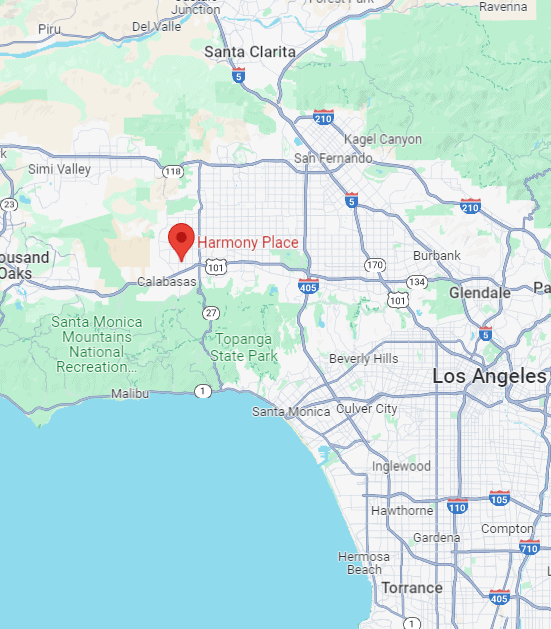How to Pay for IOP Treatment in Los Angeles, CA
Harmony Place Treatment Center offers comprehensive intensive outpatient programs (IOPs) for addiction treatment in Los Angeles, CA. Our IOP programs provide the necessary support and care to manage addictions effectively while allowing you to maintain your daily responsibilities. We customize our services to provide the precise level of care your unique situation demands.
At Harmony Place, we offer various ways to pay for IOP treatment, including utilizing insurance coverage, setting up IOP payment plans, and using sliding-scale fees if you are on a limited income. Contact us to discuss our addiction treatment programs and learn how to pay for intensive outpatient programs in Southern California.
What Is an Intensive Outpatient (IOP) Rehab Program?
A intensive outpatient program (IOP) offers treatment if you need support without 24-hour care. IOPs provide multiple weekly outpatient addiction services, such as therapy sessions, family counseling, group therapy, medication management, and medical detox, if needed. These are good for you if you transition from inpatient care or require more intensive support than traditional rehab therapy.
If you are in a structured addiction treatment program like an IOP, you can maintain your daytime responsibilities, like work, school, and family commitments, while receiving comprehensive addiction treatment. Flexible scheduling allows you to attend sessions in the mornings, afternoons, or evenings. Intensive outpatient programs (IOPs) provide addiction rehabilitation in an outpatient setting, focusing on managing conditions, honing coping techniques, and fostering enduring stability.
Are There Differences Between Intensive Outpatient and Evening Treatment Programs?
Yes, there are differences between intensive outpatient and evening treatment programs. IOPs typically offer daytime treatment throughout the week during daytime hours, providing a structured and intensive level of care for you if you need significant support but do not require 24-hour supervision.
Evening treatment programs are another type of outpatient rehab care designed to accommodate people with daytime commitments such as work or school. These programs offer evening outpatient counseling, allowing people to receive addiction care without disrupting their daily responsibilities.
Both programs aim to support addiction recovery but differ in scheduling and intensity. Contact our dedicated team to inquire about how to pay for IOP treatment at Harmony Place.
Info and Statistics on Private Pay IOP Addiction Treatment in Los Angeles
From 2020 onwards, mental health care in Los Angeles has seen significant developments and challenges. In response, the Los Angeles County Department of Mental Health (LACDMH) has been a central player in implementing a comprehensive Strategic Plan from 2020 to 2030 to enhance community services, crisis care, and re-entry initiatives.
The prevalence of mental health issues in Los Angeles is significant. According to data from the California Health Care Foundation (CHCF), the need for mental health services has been on the rise, with various segments of the population experiencing higher rates of Serious Mental Illness (SMI). For example, Californians aged 35 to 44 have the highest rate of SMI, and there has been a notable demand for mental health services among other age groups as well.
Serious mental illness (SMI) is when someone has a mental, emotional, or behavioral problem that causes significant functional impairment, severely hindering one or more major life activities. Los Angeles offers various mental health services through both public and private channels. These services range from outpatient care and community-based programs to crisis intervention and residential treatment facilities.
Los Angeles has numerous private luxury rehab centers offering specialized care for those seeking private pay options. These centers often provide more personalized and immediate services than public options, catering to those who can afford private healthcare.
Does Health Insurance Pay for IOP in LA?
Yes, health insurance often pays for IOP in Los Angeles. Many insurance plans, including private insurance and employer-sponsored plans, offer benefits for addiction treatment, including IOPs, ensuring you can access the care you need.
However, coverage details often vary based on the specific insurance provider and plan. To understand how to pay for IOP treatment, you will want to verify your benefits with your insurance company, understand potential out-of-pocket rehab costs, and confirm that the chosen IOP facility is in-network. Consulting with the treatment center can help you navigate its insurance coverage and payment options. You can check your insurance coverage at Harmony Place Rehab Center to better understand your health insurance coverage for the behavioral health intensive treatment we offer.
How to Get Health Insurance to Pay for Intensive Outpatient Programs in Los Angeles
You should contact your provider to verify coverage and learn how to get insurance for IOP treatment in Los Angeles. It’s important to understand the benefits, including in-network provider requirements, co-pays, and any pre-authorization needed for supportive outpatient care treatment.
We also recommend that you work closely with our billing department. Our professionals can assist in submitting the necessary documentation to the insurance company, including a detailed treatment plan and medical necessity letter from a licensed addiction treatment professional. Ensuring all paperwork is correctly submitted can significantly increase the likelihood of insurance approval and minimize out-of-pocket expenses. Contact us at Harmony Place to learn how to pay for intensive outpatient programs at our facility.

How Much Does an Intensive Outpatient Program Cost in California?
The cost of an intensive outpatient program (IOP) in California without health insurance coverage depends on several factors. On average, without insurance, an IOP can range from $3,000 to $10,000 per month. This cost covers individual therapy, group therapy, psychiatric assessments, medication management (if needed), and other therapeutic activities.
Factors influencing the cost include the facility’s location, the specific services offered, the program duration, and whether a nonprofit organization, private clinic, or hospital provides the program. Some facilities have sliding scale fees based on income or payment plans to help you manage costs. If you are considering an IOP, we recommend you inquire about all potential fees upfront and discuss available addiction treatment cost options with the treatment facility to make an informed decision about their financial commitment. Contact us at Harmony Place Rehab Center to discuss how to pay for IOP treatment that helps prevent relapse.
How to Lower the Cost of Your Addiction IOP Treatment Program
To lower the cost of your addiction intensive outpatient program (IOP) treatment, consider several strategies that can help manage expenses effectively. Discuss payment options with Harmony Place, where sliding-scale payments based on income are available to make treatment more affordable. These fees adjust according to financial circumstances, ensuring you receive care without undue financial strain.
Additionally, Harmony Place offers personalized payment plans tailored to fit your budget, spreading out the cost of treatment over manageable installments. Our staff is ready to assist you in understanding these options and finding the best solution for your financial situation. Call us to discuss your treatment needs, learn how we can help you access quality addiction treatment while managing costs, and understand how to pay for intensive outpatient programs in Los Angeles.
Ways to Pay for Intensive Outpatient Program if You Don’t Have Insurance in SoCal
If you’re seeking ways to cover rehab payments for an intensive outpatient program in Southern California without insurance, explore facilities that offer flexible payment plans with manageable monthly installments. Some also provide sliding scale fees based on income, making quality addiction treatment and care accessible without insurance coverage.
Utilizing Employer Assistance and Health Care Credit Cards
Employer assistance and healthcare credit cards can be valuable options for funding addiction treatment in Southern California. Employers often offer employee assistance programs (EAPs) that provide financial support for mental health treatment, including IOPs. Depending on your employer’s policy, these programs may cover a portion of the expenses or offer reimbursements.
Healthcare credit cards, used for medical expenses, can also help finance IOP costs. These cards usually have promotional financing options or low interest rates, allowing you to spread payments over time without incurring high fees. Before choosing a healthcare credit card, carefully reviewing the terms and conditions to understand repayment obligations and any potential interest charges is essential. EAPs and healthcare credit cards can provide crucial financial assistance in accessing mental health care without relying solely on insurance coverage.
Flexible Sliding Scale Fees and Payment Plans
Many intensive outpatient programs (IOPs) in Southern California offer flexible sliding-scale fees and rehab payment plans. Sliding-scale fees adjust costs based on income, ensuring affordability while maintaining care quality. This makes mental health services accessible without the financial strain of fixed pricing, effectively accommodating paying for rehab without insurance.
Additionally, IOPs often provide payment plans for drug addiction rehab without insurance that allow you to spread the cost of treatment over time. These strategies usually entail establishing manageable monthly installments and simplifying your budget for necessary care. By offering flexible sliding-scale fees and payment plans, treatment centers aim to remove financial barriers so that if you need mental health treatment, you can receive it in a way that fits your financial situation.
Leveraging Personal Savings, Loans, and Crowdfunding
If you cannot afford an intensive outpatient program (IOP) in Southern California without insurance coverage, personal savings for immediate funds or personal loans can help manage expenses over time. This provides flexibility in repayment and eases financial strain.
Crowdfunding platforms may be another option for funding mental health treatment. These platforms can enable you to raise funds from friends, family, and the community. Campaigns can be tailored to highlight the importance of mental health treatment and garner financial support from a wider network. Each method offers different alternative financing for rehab and mental health treatment. You should choose it based on financial circumstances and the urgency of accessing the necessary care.
Accessing Grants, Scholarships, and Community Resources
Grants, scholarships, and community resources are other options for covering the cost of intensive outpatient programs (IOP) in Southern California, especially for those without insurance. These aids, often tailored for mental health treatment, can substantially alleviate or fully cover expenses based on financial need or treatment criteria.
Community resources such as local government programs or nonprofit organizations dedicated to mental health services may also provide financial assistance and scholarships for rehab and mental health programs. These resources can include sliding-scale fee structures, financial counseling, or direct financial support to help you access necessary mental health care without the entire financial burden. Exploring these avenues can provide crucial support in accessing quality treatment and managing the costs associated with an IOP.
Negotiating Costs and Government Assistance Programs
Negotiating costs with treatment centers and leveraging government assistance for mental health programs, such as Med-Cal in California, can also help manage expenses. Medi-Cal provides healthcare for those in a lower income bracket. Facilities adjust fees based on financial circumstances, while government programs offer financial support and subsidies for mental health treatment, ensuring treatment for those facing economic challenges.
Exploring Support from Community Resources and Charities
Exploring support from local nonprofits and charities dedicated to mental health in Southern California can provide invaluable financial assistance for intensive outpatient program (IOP) costs. These organizations offer grants and financial aid tailored to cover treatment expenses, supporting you based on your financial circumstances.
Additionally, community resources often include sliding-scale fee structures or financial counseling services that help you navigate payment options and manage expenses effectively. These resources ensure you can access mental health care, regardless of your financial situation. By reaching out to community organizations and charities, you can find crucial support in accessing quality IOP treatment without bearing the full financial burden alone.


Private Intensive Outpatient Program in Southern California That Offers Payment Options
Finding a private intensive outpatient program in Southern California that offers flexible payment options can significantly impact your journey to wellness. At Harmony Place, we provide comprehensive rehab treatment tailored to your needs while accommodating your financial situation.
IOP Rehab Facilities in Woodland Hills, California
Harmony Place, located at 23041 Hatteras St., Woodland Hills, California 91367, offers treatment programs to support your recovery journey. Our outpatient services include intensive therapy programs, individual counseling, group therapy, and holistic outpatient treatment options. Call us to learn more about our payment plans for addiction services on a budget.
How to Get Into an IOP Rehab in Los Angeles, CA
To enter an IOP for addiction in Southern California, begin by contacting programs directly to inquire about the admission process. Typically, this involves an initial assessment to determine the appropriateness of IOP for your needs, followed by collaborative planning with the treatment team to tailor a personalized care plan.
Initial Assessment and Research
The first step in entering an intensive outpatient program (IOP) for addiction in Southern California is undergoing an assessment. This assessment, conducted by licensed professionals, evaluates your addiction status, history, and treatment needs. It helps determine if an IOP is suitable and guides the development of a personalized treatment plan.
Before the assessment, research different IOPs in the area. Look into their treatment philosophies, specialties, and staff qualifications to find a program that aligns with your needs and preferences. Contacting the IOP treatment centers directly to inquire about their admission process and scheduling an assessment can facilitate a smooth entry into the program.
Reach out to Programs and Verify Health Insurance
To start an intensive outpatient program (IOP), you should contact treatment centers directly to inquire about services and treatment approaches and schedule an initial assessment. Concurrently, verifying health insurance coverage helps determine in-network options and benefits for IOP treatment so you can know about your financial responsibility before proceeding.
Contacting the treatment centers allows you to gather essential information regarding their treatment options and admission requirements. Discussing insurance coverage with the treatment facilities and the insurance provider ensures clarity on costs and coverage, helping you make informed decisions about addiction recovery.
Evaluation and Obtain Medical Clearance
After contacting an IOP in Southern California, the next step is undergoing evaluation and obtaining medical clearance. This process involves a comprehensive assessment conducted by medical professionals to evaluate your addiction status, history, and treatment needs. Medical clearance ensures you are medically stable and ready to participate in the program’s therapies and activities.
During the evaluation, you may discuss your symptoms, past treatments, and goals with the treatment team. Medical professionals may also review your medical records and conduct necessary physical examinations to ensure the IOP is appropriate and safe for your health. Obtaining medical clearance is essential for starting treatment and ensuring you receive the needed care for your addiction recovery needs.
Begin Financial Planning and Preparation
As you prepare to enter an intensive outpatient program in Southern California, beginning financial planning is important. This involves assessing the cost of treatment and exploring payment options such as insurance coverage, out-of-pocket expenses, and available financial assistance. Understanding these factors helps you budget effectively and alleviate financial stress during treatment.
Review your policy to understand IOP service coverage, including in-network providers, co-pays, deductibles, and cost limits. Consider payment plans from IOP facilities and look for grants or scholarships for IOP addiction care. Addressing finances early in the process allows you to concentrate on recovery without financial stress.
Engage in the Admissions Process and Engagement
The addiction treatment admissions process begins with scheduling an initial addiction assessment. This assessment evaluates your needs and determines the suitability of the IOP, often involving discussions about history, symptoms, and treatment goals with a licensed medical professional.
Following the assessment, you will collaborate with the treatment professionals to create a customized treatment plan for your needs. This plan outlines the therapies, group sessions, and other support services that will be part of your IOP experience. Engaging in this process ensures comprehensive care aligned with your recovery goals and sets the stage for effective participation in your treatment plan.
Request a Callback For Help With How to Pay for IOP
- How to Pay for Rehab Without Insurance
- How to Pay for Alcohol Rehab Los Angeles
- Ways to Pay for Drug Rehab
- Payment Methods for Dual Diagnosis
- How to Pay for IOP Los Angeles
- Ways to Pay for PHP Rehab
- How to Pay for Cocaine Addiction Rehab
- How to Pay for Fentanyl Rehab California
- Ways to Pay for Opioid Rehab LA
- How to Pay for Detox Los Angeles
- How to Pay for Inpatient Los Angeles
- How Much Does Rehab Cost in LA?
- Cost of Addiction Therapy
- Cost of Addiction Treatment
- Cost of Drug and Alcohol Aftercare
- Cost of Drug and Alcohol Detox
- Cost of Drug and Alcohol Intensive Outpatient
- Cost of Drug and Alcohol Outpatient
- Cost of Drug and Alcohol Partial Hospitalization
- Cost of Drug and Alcohol Residential Inpatient
- Cost of Dual Diagnosis Treatment
- Cost of Sober Living
- Cost of Treatment
Info and Statistics on Private IOP Treatment in SoCal
Since 2020, Los Angeles has witnessed substantial progress and hurdles in mental health care. The Los Angeles County Department of Mental Health (LACDMH) spearheaded a bold Strategic Plan from 2020 to 2030, targeting enhanced community services, crisis response, and re-entry programs. This initiative aims for a resilient system that meets diverse mental health needs across settings.
Mental health concerns are prevalent in Los Angeles. Data from the California Health Care Foundation (CHCF) indicate escalating demand for services, with certain population segments witnessing higher rates of Serious Mental Illness (SMI). Notably, Californians aged 35 to 44 show the highest SMI rates, with increased service demands across other age brackets.
Serious Mental Illness (SMI) encompasses disorders causing significant functional impairment, severely affecting major life activities. Los Angeles offers a spectrum of mental health services, spanning the public and private sectors. Offerings include outpatient care, community programs, crisis intervention, and residential treatment. Private pay options abound in Los Angeles, with many centers delivering specialized, immediate care. These establishments often provide a more tailored approach than their public counterparts.












